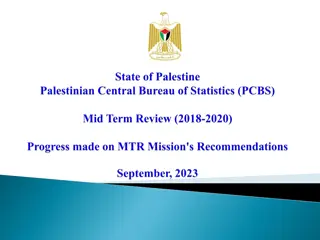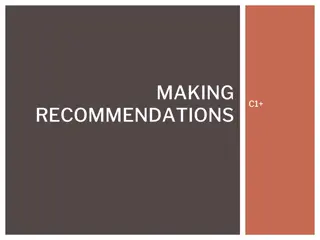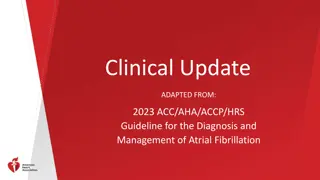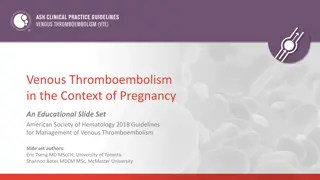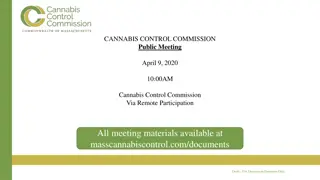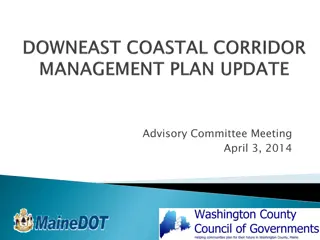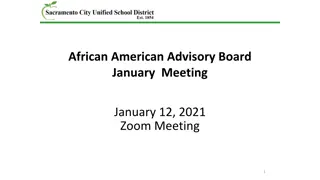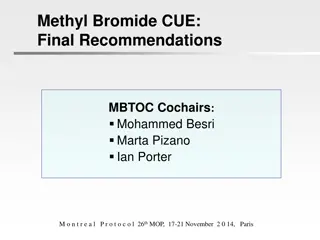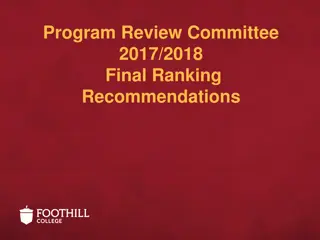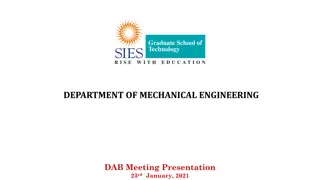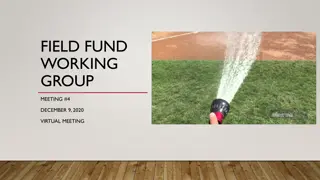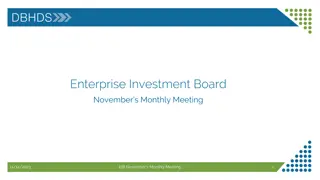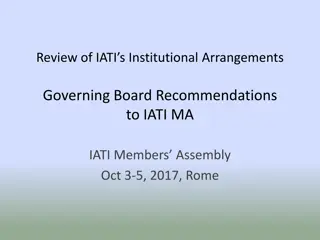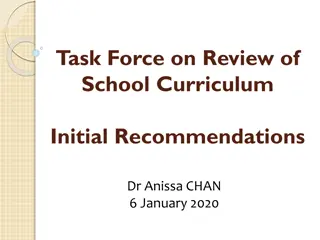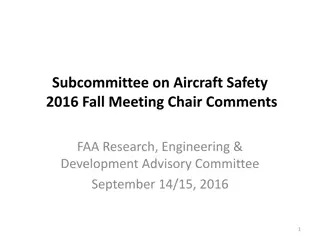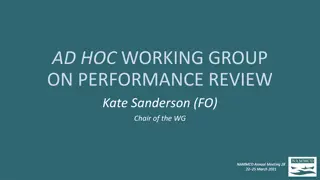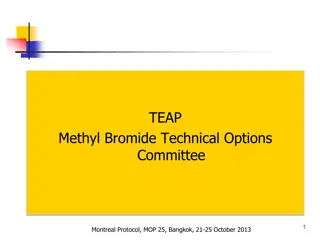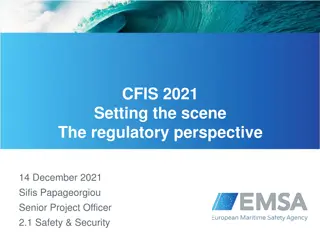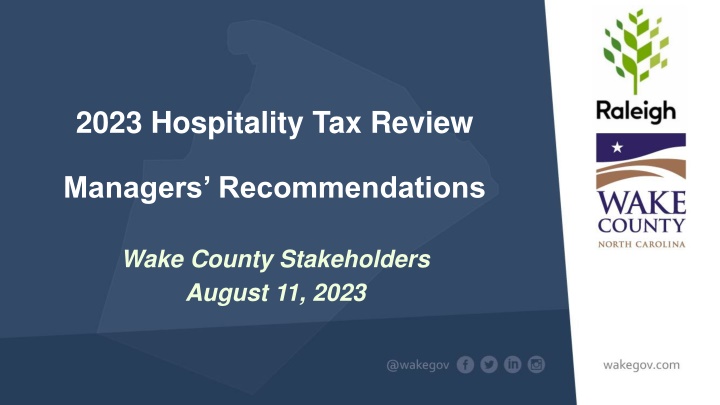
Wake County Hospitality Tax Review and Recommendations 2023
"Explore the 2023 Wake County Hospitality Tax Review, Managers' Recommendations, stakeholder meetings, operating principles, revenue sections, and goals. Learn about the process recap, stakeholders' input, and future steps for projects supporting arts, culture, sports, and conventions."
Download Presentation

Please find below an Image/Link to download the presentation.
The content on the website is provided AS IS for your information and personal use only. It may not be sold, licensed, or shared on other websites without obtaining consent from the author. If you encounter any issues during the download, it is possible that the publisher has removed the file from their server.
You are allowed to download the files provided on this website for personal or commercial use, subject to the condition that they are used lawfully. All files are the property of their respective owners.
The content on the website is provided AS IS for your information and personal use only. It may not be sold, licensed, or shared on other websites without obtaining consent from the author.
E N D
Presentation Transcript
2023 Hospitality Tax Review Managers Recommendations Wake County Stakeholders August 11, 2023
Todays Agenda Managers comments Recap of process to date Recommendations Operating Principles Revenue Section 1 Section 2 Section 3 Next Review Next steps
Wake County Hospitality Taxes State legislation approved in 1991 and amended in 1995 levies 6% on occupancy stays and 1% on prepared food and beverage countywide Revenues may only be used for projects supporting arts, cultural, sports or convention Wake County and City of Raleigh are responsible for oversight and approval for uses of revenues Managers make recommendations on uses Raleigh City Council and Wake County Commissioners vote on uses 3
Goals for 2023 Review Review operating principles for alignment with community goals and values Maintain fiscally responsible planning Consider new long term financial commitments Maximize cash position Address cost increases associated with capital projects Support existing large, regional facilities Enhance PNC Arena Advance downtown hotel to support Convention Center complex Expand convention center and relocate amphitheater Seek opportunities for smaller scale investment with impact Advance indoor sports facility in Cary Support smaller projects
Recap of the Process to date Feb 29 August 11 Stakeholder Meeting #4 - Managers Recommendations Jan Stakeholder Meeting #2 Receive presentations on PNC Enhancements and Cary Indoor Sports Complex City Council / County Commissioners Process Update Feb 15 Mar 15 Stakeholder Meeting #1 - Hospitality Tax Primer and Revenue Review Stakeholder Meeting #3 Receive presentation on Raleigh Convention Center Complex Hotel, Amphitheater and Expansion
Operating Principles Operating Principles articulate the values of the community and stakeholders as it relates to the uses and governance of hospitality taxes in Wake County. Updated Operating Principles to reflect City, County and community goals related to supporting diversity, equity and inclusion
Operating Principles A. Prioritize use of funds for projects that drive measurable, regular overnight visitation or positive return on investment (ROI) B. Support and promote the on-going capital expenditure program and expansion of existing investments in major facilities to keep them current, relevant and competitive in market C. Comply with all requirements of the existing enabling legislation D. Ensure project investments are secured by solid long-term plans, both operational and financial, that demonstrate viability and sustainability
Operating Principles E. Utilize high standards of fiscal accountability in planning and managing the use of tax revenues: A. Fulfill existing obligations before entering into significant new financial commitments B. Maintain long-term, conservative financial forecasting F. Support investments that complement equitable economic development efforts and enhance quality of life experiences for visitors, newcomers and long-time residents G. Create sports, arts and cultural opportunities, through leveraging community investments and partnerships, that benefit residents and enhance tourism offerings H. Support a project investment mix that considers location, contribution to quality of place, and equitable, sustainable types of uses (sports, cultural, arts, convention, etc.)
Operating Principles I. Engage stakeholders representing varying entities, jurisdictions and uses J. Ensure that investments support a welcoming and inclusive long-term vision of Wake County and its cities and towns as a tourism destination K. Provide a regular funding source for eligible projects that require a smaller scale investment L. Support investments that consider emerging arts, sports and cultural experiences and unmet needs
Revenue Assumptions Revenue projections shall be set at realistic and attainable levels, sufficiently conservative to avoid shortfalls and support new long-term debt plans, yet accurate enough to avoid a pattern of under stating capacity. Short-term assumptions to be revisited annually to account for current market and economic conditions. Growth Assumption Recommendation 4% FY24 3% FY25 FY33 2.5% FY34 FY38 2% thereafter Occupancy Tax 5% FY24 4% FY25 FY33 3.5% FY34 FY38 3% thereafter Prepared Food & Beverage Tax
Section 1 Arena Enhancements Financial Capacity Timing of Funding Assumes debt funded projects to begin FY25 Important Assumptions Provides $21.3M annually Leverages ~ $300M debt capacity 25-Year financing term Centennial Authority to retain current $9M commitment through FY29 Funding authorization to support construction draw program Assumes long-term lease extension; development around arena; and affordable housing
Section 1 Indoor Sports Facility Financial Capacity Timing of Funding Assumes project funding to begin FY26 Important Assumptions Provides $5.35M annually Leverages ~ $75M debt capacity 25-year financing Project to use cash accrued from FY22 - FY23 commitment to support project in FY26
Section 2 Raleigh Downtown Hotel/Parking Infrastructure Financial Capacity Timing of Funding Assumes projects to begin FY25 Important Assumptions Provides $6.02M annually Leverages up to $75M capacity 20-year financing Not to exceed $75M
Section 2 Raleigh Music Venue Relocation and Convention Center Expansion Financial Capacity Timing of Funding Important Assumptions Leverages debt financing and uses of fund balance Funding authorization to support construction draw program Provides $25.6M annually Leverages ~ $387.5M debt capacity ($32.5M amp and $355 RCC expansion) 20-year financing and 30-year financing structures considered Projects to begin FY25
Section 2 Business Development Fund Financial Capacity Timing of Funding Important Assumptions Supports accelerating Convention Center Expansion GRCVB will continue to operate BDF program under current framework and guidelines Transition funding to GRCVB Operating Budget FY24 FY25: Continue full funding $600,000 FY26: Reduce to $300,000 FY27: Reduce to $200,000
Section 2 Receive Funds from Section 3 Financial Capacity Timing of Funding Important Assumptions Add column to allocate $3.5M transfer from Section 3 to adhere to fund balance guidelines Occur FY28-FY29 Future reimbursement would occur; revenue growth sufficient to cover fund balance guidelines would automatically cancel transfer
Section 3 Town of Cary Sports Facilities Capital Maintenance Financial Capacity Timing of Funding Important Assumptions Restore $1M reduction from FY21 due to COVID $1M additional allocation FY24
Section 3 Competitive Process Funding Financial Capacity Timing of Funding Important Assumptions If combined with Small Project Funding, totals $23.5M Process to be held late 2025 Allocation to $15.5M over four years FY24 FY27
Section 3 Transfer Funds to Section 2 Financial Capacity Timing of Funding Important Assumptions Future reimbursement would occur; revenue growth sufficient to cover fund balance guidelines would automatically cancel transfer Transfer $3.5M to Section 2 to adhere to fund balance guidelines Occur FY28-FY29
Next Review Review Team Full Review Annual review of revenue trends Update short term growth for each budget year Complete no later than June 30, 2026 Include evaluation of operating and capital maintenance requirements for new/expanded facilities
Funding Recommendations in Summary Adjust revenue to acknowledge long-term financing goals Continue current commitments Support significant enhancement of PNC Arena Support increased costs associated with new Indoor Sports Facility Support downtown Raleigh hotel and provide for expansion of Convention Center Support larger investment for competitive projects countywide
Next Steps Today August 14 August 15 August 21 September Feedback to County / City Managers Present recommendations to Wake County Board of Commissioners Present recommendations and vote by Raleigh City Council Vote by Board of Commissioners City and County vote on 23rd Amendment at regularly scheduled meetings

